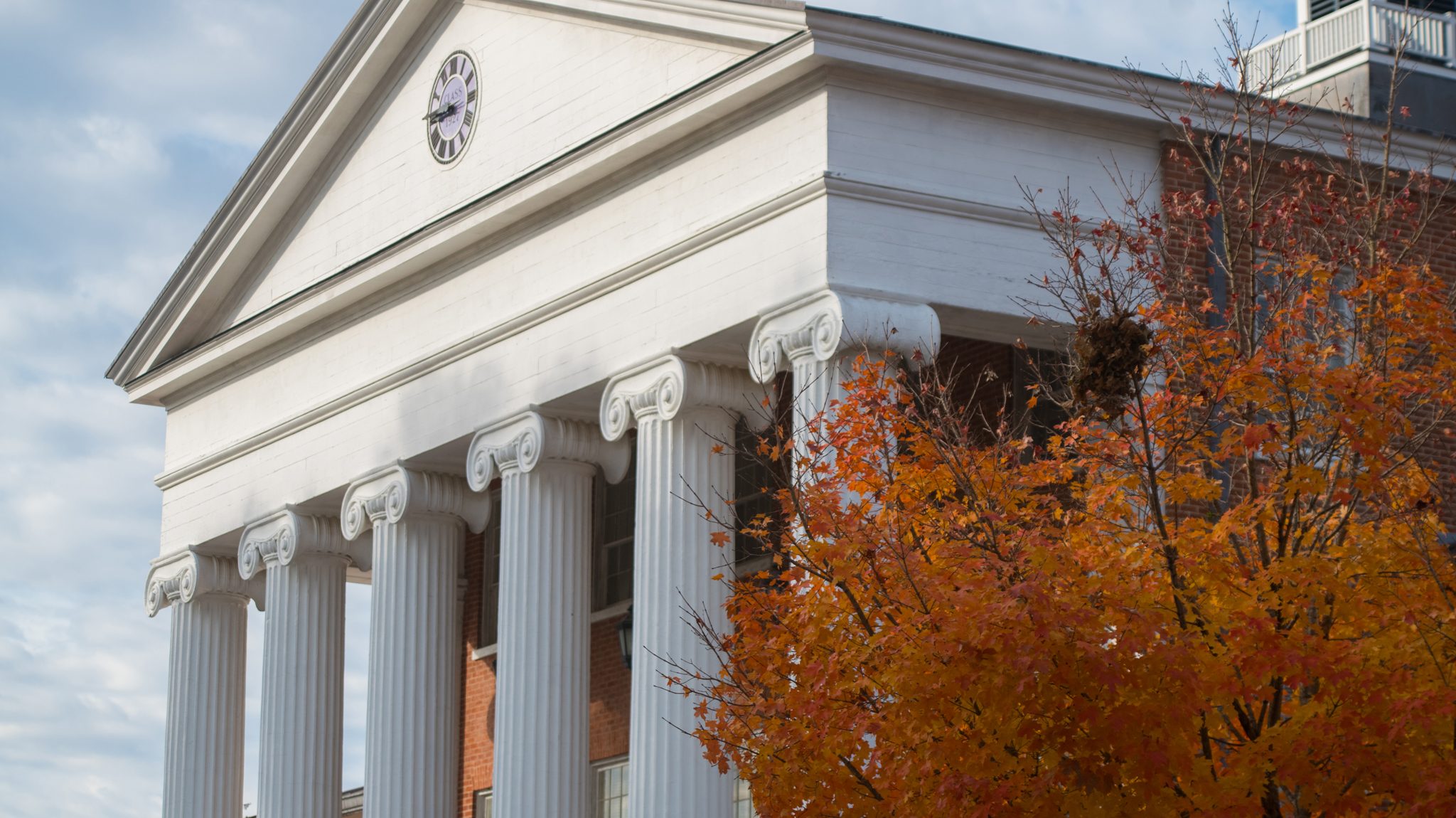
UM researchers will explore projects involving thunderstorm asthma and how Gulf Coast universities can respond to natural disasters, thanks to seed grants funded through the Flagship Constellations initiative. Photo by Kevin Bain/Ole Miss Digital Imaging Services
OXFORD, Miss. – Exploring thunderstorm asthma and examining how Gulf Coast universities can respond to natural disasters are the focus of two new University of Mississippi seed grants funded through the Flagship Constellations initiative.
Thunderstorm asthma is the phenomenon where pollen can break into smaller pieces during severe thunderstorms and cause asthma events. Researchers are collecting and characterizing air pollution, specifically fine particulate matter and pollen, in north Mississippi to investigate the link between air pollution and thunderstorms to better understand the occurrence.
The second grant will fund Ole Miss researchers traveling to colleges and universities throughout Mississippi to interview institutional leaders about what they learned from previous disasters and how they have prepared for future crises. Researchers hope to identify promising practices and transferrable lessons that other school leaders can adopt throughout Mississippi and the broader Gulf Coast region.
Both grants are supported through the Disaster Resilience Flagship Constellation, an initiative where UM researchers are studying a multifaceted methodology – prevention, mitigation, preparedness, response and recovery – to help reduce the impact of disasters on communities both in the state and around the world.
“These two seed grants show the diversity of research activities that fall within the scope of the Disaster Resilience Flagship Constellation,” said Stephanie Showalter Otts, director of the National Sea Grant Law Center at the UM School of Law and constellation co-team leader. “We are excited to support the work of these faculty members to build new collaborations and lay the foundation for future external funding proposals in the field of disaster resilience.”
Introduced in November 2017, the Flagship Constellations initiative is a collaborative effort among faculty, staff and students from the Oxford and UM Medical Center campuses to explore and solve complex issues through the diversity of ideas. The initiative includes multidisciplinary teams working to find solutions to grand challenges in the areas of brain wellness, community well-being and disaster resilience.
The Disaster Resilience Flagship Constellation combines insight and research from engineering, psychology, sociology, political science and legal disciplines with material sciences, information technology, emergency management and public health. The goal is to develop technologies and inform policies to mitigate disasters and increase the resilience and sustainability of communities.
The “Insights into Thunderstorm Asthma” project involves researchers collecting air particle and pollen samples at two sites: the Anderson Hall rooftop on the Ole Miss campus and the UM Field Station northeast of Oxford.
“Weather events, like thunderstorms, can decrease the size of air pollutants, which allows them to enter our lungs,” said Courtney Roper, assistant professor of environmental toxicology and research assistant professor in the Research Institute of Pharmaceutical Sciences at UM.
“I find air pollution to be very interesting because everyone is exposed to it no matter where they live and it has many adverse effects on human health. I think it is very important to study air pollution so that we can better understand things like thunderstorm asthma and ultimately protect human health.”
The project will deliver information about air quality in unmonitored regions of Mississippi; provide data connecting thunderstorms, fine particulate matter and pollen; create an environment to develop research questions and grant proposals; and establish a transdisciplinary team for future funding applications.
The research funded through the seed grant will extend over two years.
Joining Roper on the project are Maribeth Stolzenburg, UM research professor of physics and astronomy; Fazlay Faruque, professor of preventive medicine at the Medical Center; Scott Knight, UM Field Station director; and Steven Mischler, supervisory research scientist at the National Institute for Occupational Safety and Health.
“In the Wake of a Hurricane: A Case Study of a Gulf Coast University” involves two UM professors investigating how university leaders can foster organizational resilience in the wake of natural disasters.
“Colleges and universities in the Gulf Coast region sustained $1.4 billion worth of damage during Hurricanes Katrina and Rita (in 2005),” said Frank Fernandez, an assistant professor of higher education. “We want to learn about how leaders can support organizational resilience so that colleges and universities can serve students and their communities during times of crisis.”
Joining Fernandez on the project is Hilary Coulson, visiting assistant professor of gender studies in the university’s Sarah Isom Center for Women and Gender Studies.
The pair hope to demonstrate that resilience is not an inherent trait possessed by some leaders or organizations, but that it can be developed; support organizational resilience in schools, colleges and universities; and inform academic leaders on how they can reduce the impact of natural disasters on surrounding communities.
The project is expected to be completed in December 2020.
Future research may focus on how other colleges and universities in the Gulf Coast region can develop organizational resilience in the context of natural disasters.
The grants are supported by the Ernest R. Duff Flagship Constellation Fund, which was created through a $1 million donation to the Flagship Constellations initiative by Thomas and Jim Duff in honor of their father.
The Disaster Resilience Flagship Constellation’s other team leader is Greg Easson, associate dean for research and graduate programs at the School of Engineering and professor of geology and geological engineering. Easson also is director of the university’s Mississippi Mineral Resources Institute.
For additional information about the Disaster Resilience Flagship Constellation, visit https://flagshipconstellations.olemiss.edu/disaster-resilience/.